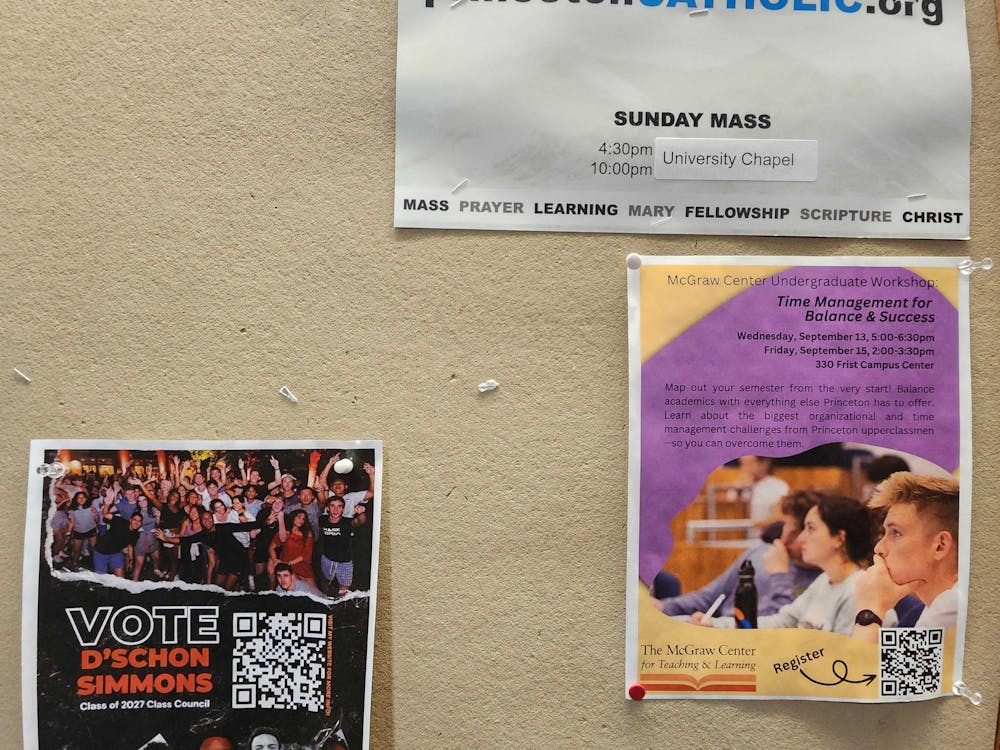Five candidates emerged victorious from a crowded field of 23 candidates in the Class of 2027 Class Council election, nearly double the size of last year's field. The USG Fall Elections penalty report reveals that over the course of the campaign, nine candidates broke official USG election rules, with two candidates sanctioned. The most common violation was a failure to submit their expenditure report on time. While submitting late did not incur a campaign restriction for most candidates, penalties increased sharply, with a candidate submitting two hours late losing their ability to send electronic messages and a candidate being disqualified after submitting 12 hours late. Only four candidates reported any expenditures at all during the campaign, meaning at least some of the candidates submitting late were submitting no expenses.
The freshman class council candidates have a number of rules that they must follow both within their campaigns and, for the elected members, in office as class councilors. The Undergraduate Student Government (USG) Senate and Class Government elections are guided by the elections handbook, which details petitioning and campaigning rules, penalties, voting procedures, and election cycle calendars.
The violations reported this year primarily addressed the delayed submission of an expenditure report to the chief elections manager and treasurer. This requirement, detailing any expenses incurred by the campaign leader and the number of pages of paper used within the campaign, applies to all candidates, regardless of whether or not they spent anything. 18 of the 23 candidates spent nothing according to the reports.
The elections handbook outlines the various restrictions which can be placed upon candidates after receiving different numbers of penalty points. Failure to comply with campaign restrictions leads to disqualification of the candidate according to § 606. (d) of the elections guidebook.
Failure to provide an expenditure report by 8 p.m. on Sept. 29 cost candidates 10 penalty points per hour delay. Additionally, the elections handbook limits campaign expenses to $50. According to the report, Harry Hurley ’27 was disqualified for submitting his expenditure report 12 hours and 45 minutes late.
Other violations of this rule came from Oscar Barrios ’27, Mya Koffie ’27, Marianna Cheely ’27, Muhammad Elkayal ’27, and Skyé Lowe ’27. Readlinger received 20 penalty points for submitting two hours late. This meant for Readlinger that “A campaign representative may not send an electronic message in furtherance of the campaign leader’s campaign.” For Cheely and Koffie, who submitted their report 80 minutes late, there was no additional penalty.
Koffie is a contributing Humor writer for the ‘Prince.’
Disqualification of campaigns can occur in two scenarios: a representative of the campaign — whether that is the campaign leader or another representative of the campaign — violates a rule for which the penalty is disqualification, or the campaign receives at least 50 penalty points through any rule violation. For Hurley, 127 penalty points more than doubled the threshold for disqualification of 50 points.

The expenditure allowance for each candidate’s campaign is $50, and third-party expenditures are prohibited. The elections guidebook dictates that “An expenditure in furtherance of a campaign may only be made by that campaign’s leader.” The paper limit for each campaign cannot exceed the area of 100 sheets of 8.5” by 11” paper.
The placement of posters within non-designated areas was the only other cited violation. D’Schon Simmons ’27 and Emily Dickinson ’27 both broke this rule, however received no penalty as their posters were taken down after a warning takedown notice was issued to the candidates.
USG provided The Daily Princetonian with the expenditure reports of the election of the freshman class council. Of the candidates that had expenses, “the majority of expenditures involved purchasing consumable goods, especially foods and beverages.” According to the reports acquired by the ‘Prince,’ only four candidates claimed expenses, spending $6.30, $28.99, $45.28, and $46.44.
Forming the freshman class government, the elected members hold positions of equal responsibility. The class governments are responsible for planning social events for their year and creating and distributing class gear. During their time in office, the councilors must hold at least one public meeting per month to provide opportunities for their peers to provide suggestions for the class government in addition to publishing the budget and report for each semester.

Victoria Davies is a News and Newsletter contributor for the ‘Prince.’
Please send corrections to corrections@princeton.edu.








